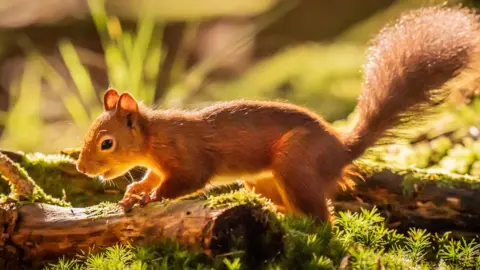Plan to reverse 'post-industrial' wildlife decline
 PA
PAMerseyside councillors are discussing plans to rejuvenate a "post-industrial" decline in biodiversity across the region.
Sefton Council heard the borough's wildlife had been depleted since 1989, with the local extinction of 36 "priority species" of plants and animals.
The authority's cabinet was discussing the regeneration of Merseyside's biodiversity in response to DEFRA's call on the Liverpool City Region Combined Authority (LCRCA) to produce a Local Nature Recovery Strategy.
Sefton has agreed to approve the details of the draft plan and a future public consultation it had been asked to back by the combined authority.
The recovery strategy has identified three main priorities which include the mapping of the region's most valuable existing habitats and work to reverse the decline in biodiversity.
The Local Democracy Reporting Service cites an LCRCA report which said the region's "post-industrial legacy" had left its biodiversity in a state of decline, with a 5% loss of all habitats since the 1980s and 10% of its most biodiverse grasslands.
'Air quality improvements'
Among the species discussed were red squirrels.
Formby is home to a National Trust nature reserve, which is famous for its red squirrel colony, although the species remains under threat.
The strategy is intended to bring a new urgent action to restore the region's natural environments, bringing a range of benefits to the borough.
The council said it believes the policy will positively affect its work tackling climate change, increase access to quality green spaces and result in local improvements to air and water quality.
Public consultations have begun and its second phase will take place in February.
Metrolitan mayor Steve Rotheram said: "With so much of our country's wildlife and natural biodiversity at risk, these fragile ecosystems need to be protected more than ever.
"How fantastic would it be, for example, to see our famous red squirrel population growing again?"
Listen to the best of BBC Radio Merseyside on BBC Sounds and follow BBC Merseyside on Facebook, X, and Instagram, and watch BBC North West Tonight on BBC iPlayer.
